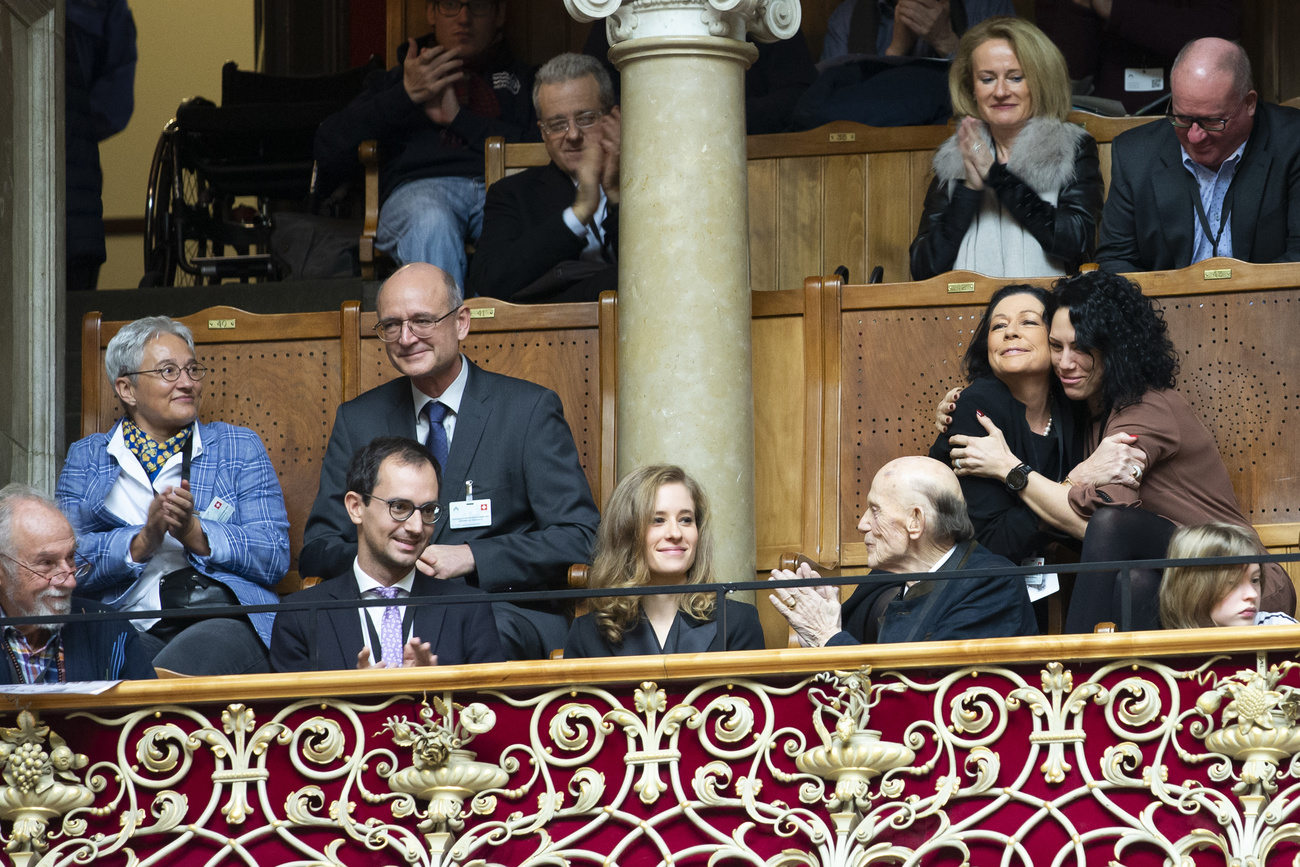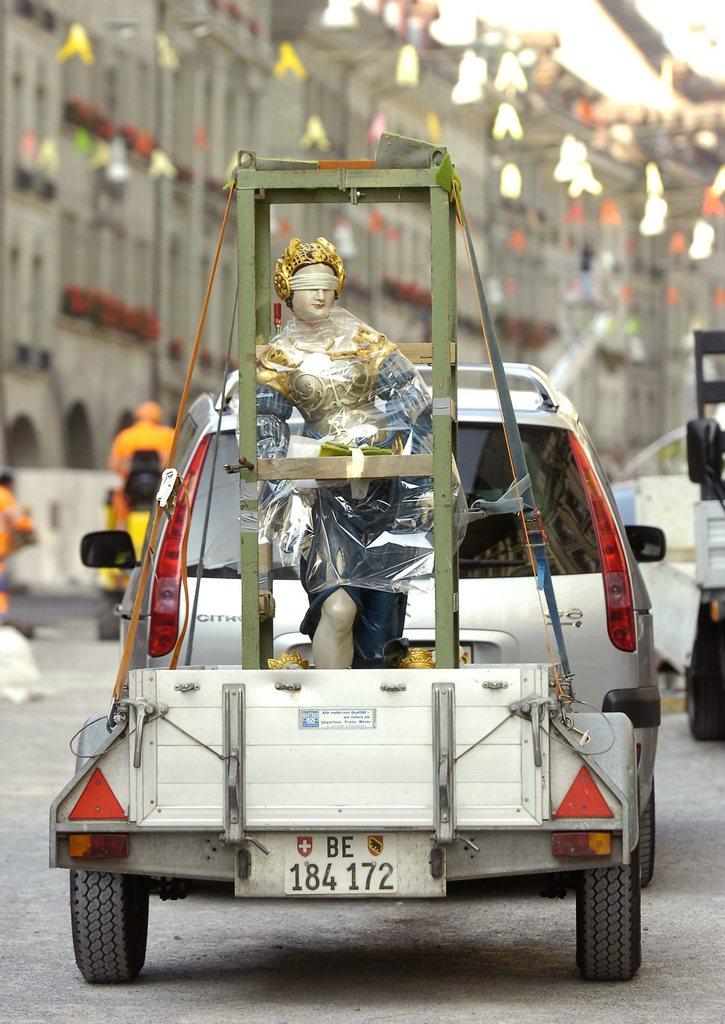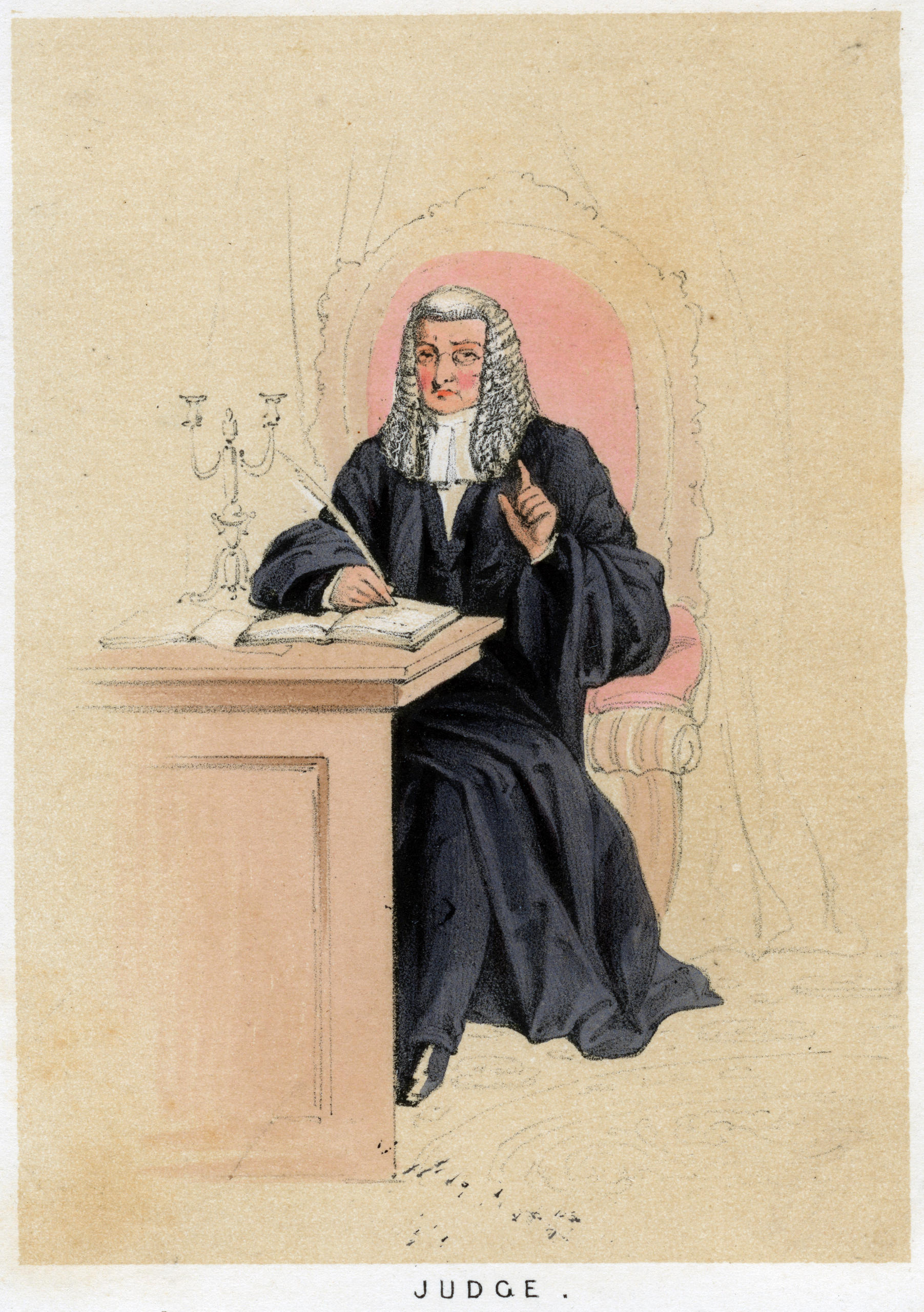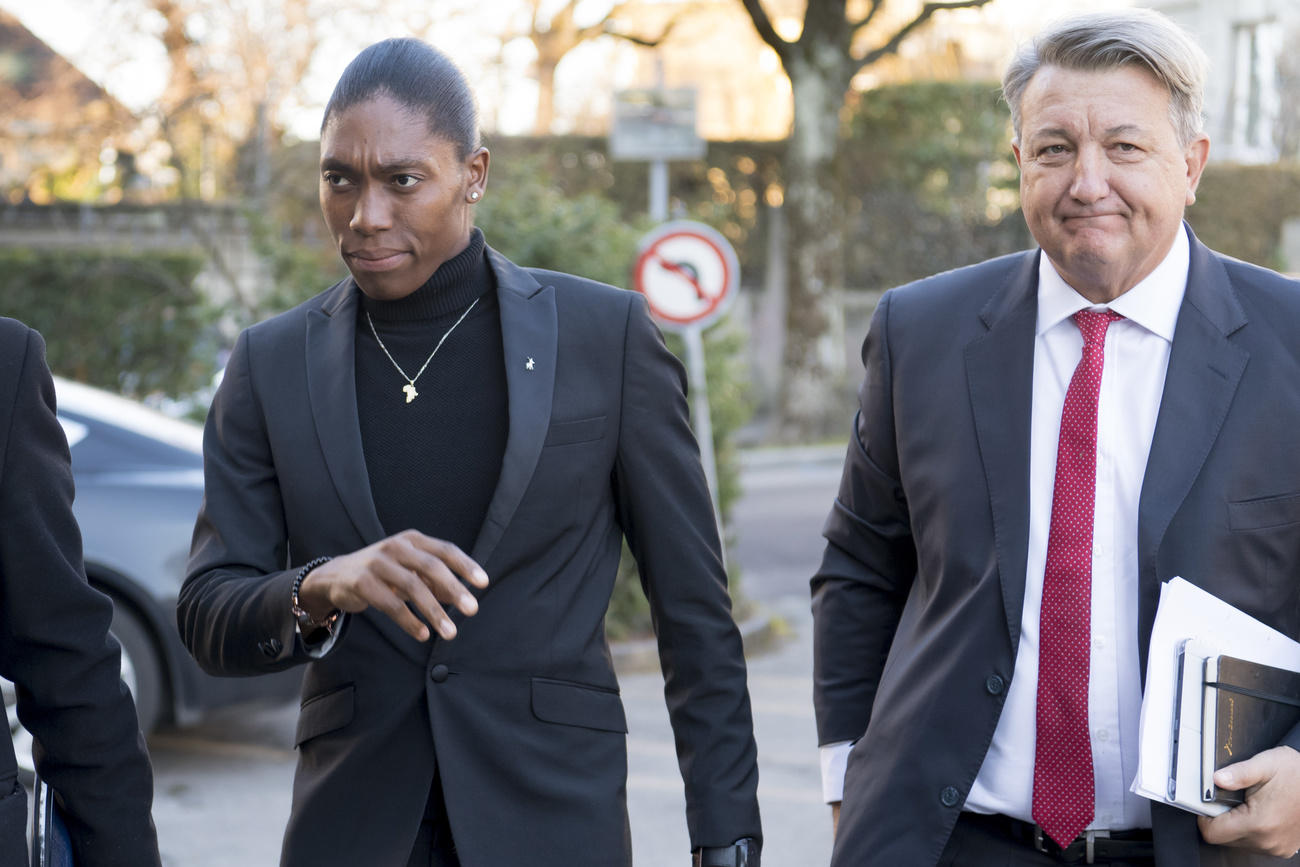Switzerland’s niggling problem with the independence of the judiciary

Long a matter of cagey compromise, the appointment of judges in Switzerland has recently made headlines – with more than just the separation of powers at stake.
It’s the United States rather than Switzerland that comes to mind when you think of a judicial slugfest.
The battle currently underway over who should replace the late Ruth Bader Ginsburg on the Supreme Court, less than two months before the presidential election, is part of a long tradition of political wrangling over judicial appointments to the country’s highest court. In September 2018, millions tuned in to live Senate hearings of Donald Trump’s nominee Brett Kavanaugh, confronted with accusations of sexual misconduct as a student. As he faced tough questions, thousands demonstrated outside, both for and against him.
In the end, senators approved the nomination by a tiny majority and Kavanaugh became one of the nine members of the Supreme Court, an appointment for life.
Things are usually calmer in Switzerland, where – as in the US – the constitution explicitly guarantees the independence of the judiciary (Art. 191c). But here too the separation of powers essential to a democracy can sometimes become a matter of public discussion.
On September 23, both houses of parliament are set to appoint a new crop of judges to the Federal Court. But in the lead-up to this, the rightwing Swiss People’s Party has dropped a bombshell.
“We’re proposing to vote judge Yves Donzallaz out of office,” the leader of the party’s parliamentary group Thomas Aeschi has announced.
Reaction was not long coming. “This approach calls the whole separation of powers into question,” another federal judge declared. Donzallaz was originally nominated to the court by none other than People’s Party figurehead Christoph Blocher. But in recent years he has been part of numerous court decisions which rubbed the party the wrong way – including when it comes to the matter of the free movement of people between Switzerland and the European Union.
“Judge and executioner: in the beginning was love; all that’s left is hate,” was the title of an editorial in the Berner Zeitung newspaper. The Neue Zürcher Zeitung put its disapproval bluntly: “this recalls the approach adopted in increasingly autocratic countries like Turkey, Hungary and Poland,” the newspaper wrote.
Indeed, this attempt by a political party to vote a member of the highest court in the land out of office represents “a whole new dimension”, according to Lorenz Langer, an assistant professor of public law at the University of Zurich.
“Nothing like this has ever happened before.”
Paying into party coffers
As in the US and many other democracies, Switzerland’s top judges are appointed by the people’s representatives in parliament. In Germany, on the other hand, the government appoints the constitutional court; in Italy it is a committee drawn from the judiciary itself.
But even before this attack on one of the 38 members of the Federal Court, how Switzerland chooses its senior judges had been coming in for criticism, both at home and abroad.
In 2018 the Council of Europe’s Group of States against Corruption (GRECO) declared that the procedure in Switzerland was “incompatible with the principles of a modern democracy”. GRECO’s report particularly criticised the fact that judges pay a portion of their salary into their own party’s coffers in a form of indirect party funding. This process has contributed to a situation whereby, since 1943, not a single judge who is not affiliated with a political party has been appointed. What’s more, every Federal Court judge has to stand for re-election on a regular basis – every six years.
A people’s initiative is currently gathering steam that proposes to replace the current system with one in which judges would be drawn by lot.
Lorenz Langer, however, currently doing research on the process of judicial appointments, doesn’t think it’s a good idea.
“The appointment of judges in its present form does not measure up to a strict interpretation of the independence of the judiciary. But it does contribute to a consensual acceptance of the court’s decisions, and thus bolsters judicial independence in practice,” he recently wrote in an opinion piece in the Neue Zürcher Zeitung.
No constitutional court
The form taken by the separation of powers, just like whether or not citizens have the right to direct democratic instruments, reflects the history and power relations in a country. This is also shown by the presence or absence of constitutional courts. While such a court plays an important watchdog role in a country like Germany – with its traumatic memory of totalitarianism – nations that have not experienced such a history are unlikely to have a constitutional court: Switzerland is an example, as are the Netherlands and Sweden, both of which have long democratic traditions.
Yet one may also wonder why the biggest political party in Switzerland has chosen this particular moment to launch a politically motivated attack on the top court.
“I am a bit surprised, because even if the party achieves something with this, it will be more like the opposite of what it intends – namely, a looser link between federal judges and political parties”, Langer writes. “This manoeuvre will merely give a boost to the people’s initiative to reform the judiciary, which the government has just turned down without so much as a counter-proposal.”
The federal court response
Something else is noticeable, however: the controversial parliamentary appointment of the new judges comes just four days before a national popular vote in Switzerland.
On September 27, citizens will decide on the People’s Party’s anti- migration initiative, which aims to abolish the free movement of people agreement with the EU. An attack on a “renegade” conservative judge, who sees the free movement of people in a different light from his own party, may well serve to fire up some of the voter base.
Donald Trump also relies on these kinds of manoeuvre. Just days before Ginsburg’s death on September 18, he published a list of 20 politically acceptable candidates who he might nominate to the Supreme Court if he were re-elected in November.
Interestingly enough, these campaign manoeuvres which aim to get out the party vote often have further effects. The current debate in Switzerland may strengthen rather than weaken public concern with the separation of powers and the rule of law. The Federal Court, under attack, has already quietly reacted: the party affiliation that used to be given beside the name of each judge disappeared from the court’s website just weeks ago.
Translated from German by Terence MacNamee

In compliance with the JTI standards
More: SWI swissinfo.ch certified by the Journalism Trust Initiative













Join the conversation!